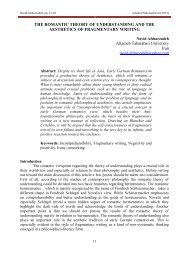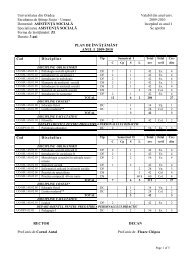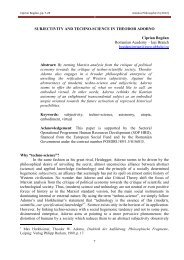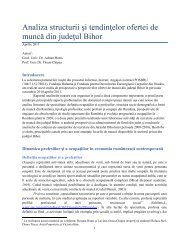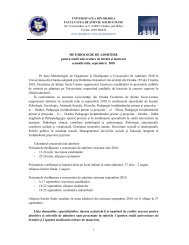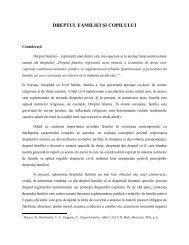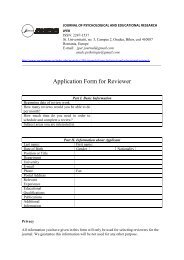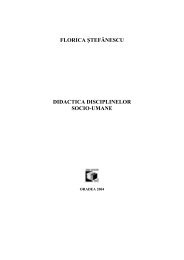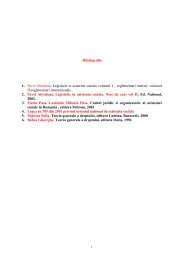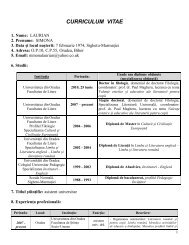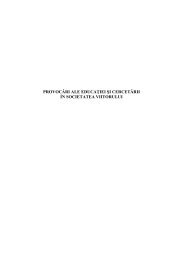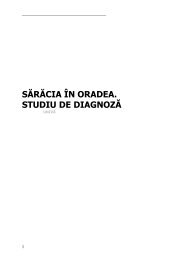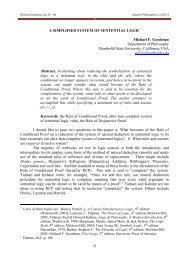Stephan Käufer: HEIDEGGER ON MINENESS AND MEMORY
Stephan Käufer: HEIDEGGER ON MINENESS AND MEMORY
Stephan Käufer: HEIDEGGER ON MINENESS AND MEMORY
Create successful ePaper yourself
Turn your PDF publications into a flip-book with our unique Google optimized e-Paper software.
<strong>Stephan</strong> <strong>Käufer</strong>, pp. 51 - 65 Annales Philosophici 2 (2011)<br />
You are always disposed, and you are always disposed in your thrownness, which is<br />
what Heidegger says you come back to. This means that the specific way you find yourself<br />
solicited by aspects of your situation is prefigured by the facticity of your Überantwortung.<br />
Your thrownness dictates that you can find yourself in the conference as a professor; perhaps<br />
you could find yourself here as a stenographer. But not as a scribe or amanuensis. If you<br />
make a conscious effort to develop the skills of a scribe, i.e. carefully copying manuscripts by<br />
hand, it will come out as something else, a calligrapher or research assistant perhaps. There<br />
are professorish skills and attunements in the ―there,‖ but there are no longer scribe-ish ones.<br />
As quoted above, you disclose the situtation and can only disclose the situation by taking on<br />
(übernehmen) these skills and attunements.<br />
Resoluteness, in which you come back to yourself, in each case<br />
discloses the factical possibilities of authentic existing from the<br />
culture (Erbe) which, as thrown, you take on (SZ, p. 383).<br />
Delivering yourself or delivering possibilities then consists in taking on a culture or a<br />
heritage in taking up available skills and attunements, resolutely or not.<br />
So Heidegger‘s answer to the basic question of the historicality chapter – why are<br />
these possibilities my possibilities? – consists of a bi-directional claim. On the one hand these<br />
possibilities are mine because I take them on. Authentically or not, I exercise the know-how<br />
of an ability-to-be, and I find myself responsive to the solicitations appropriate to this ability.<br />
On the other hand, I take on these skills and attunements because only in doing so can I be a<br />
self at all. The only way for the temporal structure of care to engage, i.e. the only way for<br />
Dasein to exist, as a self determined by mineness, is to take on received possibilities.<br />
Heidegger defines extendedness in terms of this sketch of an authentic way of taking<br />
on a possibility grounded in the received culture. Extendedness is the unity of the temporal<br />
ecstases in historical existing as a possibility. Your existence is extended, temporally<br />
extended, insofar as your future and your beenness are unified, i.e. insofar as in existing for<br />
the sake of a possibility (i.e. the futural ecstasis of coming-towards with its horizonal schema<br />
of for-the-sake-of) you come back to your thrownness (i.e. the past ecstasis of having-been<br />
with its horizonal schema of in-the-face-of). This is how you ―hold birth and death and their<br />
‗inbetween‘ ‗encompassed‘ [einbezogen] in your existence‖ (SZ, p. 390).<br />
Heidegger emphasizes two aspects of extendedness. First, it is a feature of constancy.<br />
Constancy is the sameness or self-identity of Dasein. Heidegger first addresses it in §64 on<br />
―Care and Selfhood,‖ in preparation for the analysis of originary temporality. Here, now, he<br />
answers the question raised there. In particular he writes that<br />
Constancy does not first form itself by cobbling together timeslices;<br />
rather these arise from already extended temporality (SZ, p.<br />
391).<br />
So constancy is not a constructed unity of the self, but an underlying one. Heidegger<br />
has a helpful discussion of his existential notion of self-sameness in his Kant lectures. There<br />
he writes:<br />
The self must be able to identify itself as existing. It must be able<br />
to understand itself in every concrete instance as the self-same<br />
57



